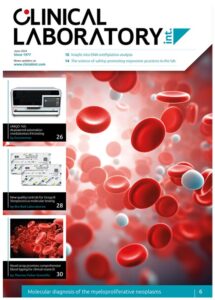HIV prophylaxis: the Atlantic divide
Although HIV/AIDS is still the leading cause of death in Africa, and the fourth cause of death globally killing one and a half million people per year, substantial progress has been made in its prevention, diagnosis and treatment in recent years. Thanks particularly to effective antiretroviral drugs requiring less complex dosing regimens, HIV/AIDS is no longer an inevitably fatal disease for the approximately 40% of patients receiving antiretroviral therapy (ART), but rather a chronic condition, albeit one which involves careful and continuous monitoring. However in spite of occasional claims that HIV-positive subjects have been cured of their infection, the so-called ‘Berlin patient’ is still the only person known to have recovered from HIV/AIDS. And he, after eleven years of living with HIV/AIDS, was given bone marrow transplants to treat his acute myeloid leukemia from a donor with a rare mutation affecting the CCR5 HIV co-receptor. Such therapy is, of course, impossible to provide on a large scale; 60% of HIV/AIDS patients are not even receiving ART.
In spite of intensive efforts to develop a safe vaccine, now facilitated by the WHO-UNAIDS HIV Vaccine Initiative, no tested candidates have so far been sufficiently effective to progress beyond clinical trials. Until such a vaccine is available, pre-exposure prophylaxis (PrEP) with the antiretroviral drug ‘Truvada’, approved by the FDA over two years ago for preventing HIV infection, is being prescribed to United States residents at high risk of being infected by HIV. And the US Centers for Disease Control and Prevention recently recommended PrPE for HIV-negative subjects with HIV-positive partners, as well as for people who have had risky, condomless sex or have shared needles when injecting drugs. Even the World Health Organization’s recent HIV prevention guidelines, whilst stressing condom use to prevent infection, recommended the use of PrEP for gay men “as an additional HIV prevention choice”.
So in the face of such endorsements why are the European Medicines Agency (EMA) and the European Centre for Disease Prevention and Control (ECDC) still dragging their feet? Apparently the ECDC, in spite of conceding that the many robust studies using Truvada for PrEP show “encouraging results”, states that insufficient European-specific research has been carried out on the efficacy, cost-effectiveness and side effects of PrEP as well as on possible changes in the sexual behaviour of subjects taking prophylaxis. And indeed it is tragic that so many people with HIV/AIDS are not yet receiving appropriate treatment, but does it really help them to deny PrEP to Europeans who need it?



